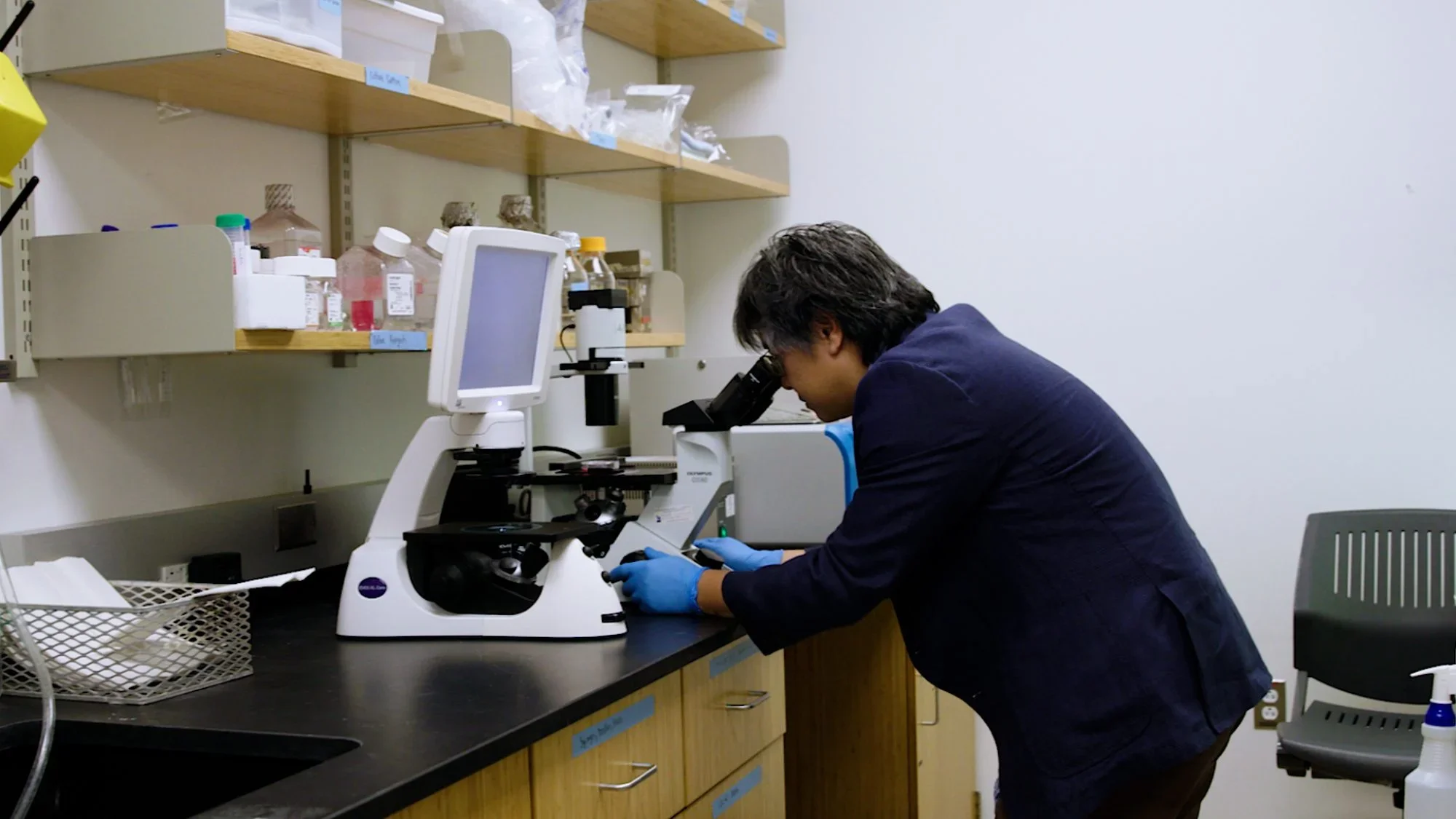Dr. Jeffrey Huang featured in Georgetown’s “Ask a Professor” Series!
This month, Dr. Jeffrey Huang of the Department of Biology was the focus of Georgetown’s ongoing “Ask a Professor” series, a collection of articles and videos highlighting professors and their research at Georgetown. In his lab, Dr. Huang studies neuroinflammation and regeneration as they relate to multiple sclerosis (MS), an autoimmune disease in which the myelin covering neuronal axons is attacked by the body’s own immune system. Although MS affects millions of people globally and is known to involve myelin degeneration, the cause of the disease is unclear; however, MS is currently thought to be driven by a combination of genetic and environmental factors such as infection. Dr. Huang’s work leverages a key fact about MS: in early stages, the body remains capable of regenerating myelin, but this regenerative capability is lost in later stages.
In this month’s edition of “Ask a Professor,” Dr. Huang outlines his lab’s work to remyelinate MS axons by targeting microglia, a type of support cell in the nervous system. One critical function of microglia is that they direct other specialized glial cells, and oligodendrocytes, to myelinate neuronal axons. But in MS, these microglia are inflamed and thus less effective at triggering remyelination. To reverse the effects of late-stage MS, the Huang Lab has developed a new drug that successfully reverses the microglial inflammation commonly observed in the disease in the mice. The team is now preparing to move to clinical trials. Read the “Ask a Professor” article and watch Dr. Huang explain this discovery here: https://www.georgetown.edu/news/new-drug-a-breakthrough-for-late-stage-multiple-sclerosis-patients/
Dr. Huang is a provost’s distinguished associate professor specializing in neurobiology. To read more about his research, visit https://www.huang-lab.com/
